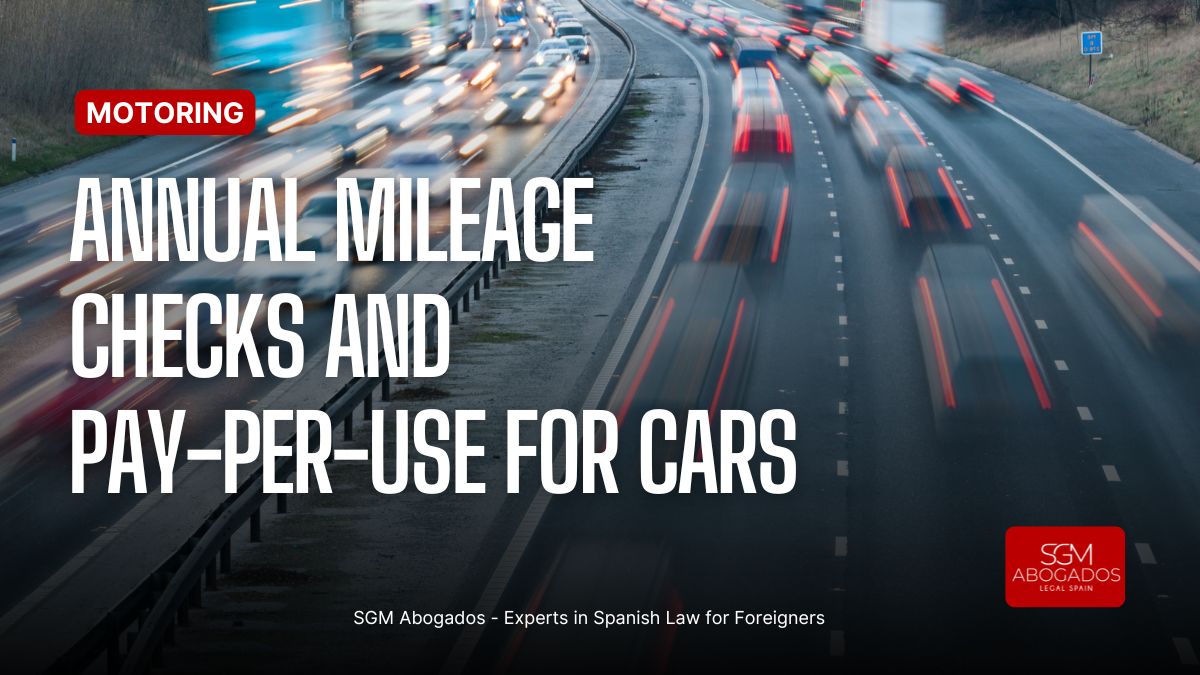Spain’s €250 Young Person’s Rental Bonus
Spain’s €250 Young Person’s Rental Bonus: What You Need to Know
At SGM Abogados, we strive to keep you informed about legal and public-policy developments that affect housing, tenancy, and financial aid in Spain. One such measure is the “Bono Alquiler Joven” (Young Person’s Rental Bonus) — a state aid program to support renters under 35. Below is a comprehensive, updated overview of how it works, who qualifies, and how to apply — with tips from a legal perspective.
What Is the Young Person’s Rental Bonus?
The Young Person’s Rental Bonus is a government-backed subsidy, originally introduced in 2022, aimed at helping young adults with moderate-to-low incomes meet rental costs.
Key features:
It provides €250 per month, for up to two years, to eligible renters.
From 2026 onward, legislative proposals anticipate raising the maximum subsidy to €300 per month.
Each Autonomous Community (region) is responsible for implementing and managing the scheme locally.
This aid is intended to facilitate emancipation (i.e. moving out of one’s parents’ home) and to alleviate the burden of high rental costs among youth.4
Who Qualifies? Eligibility Criteria
To benefit from the rental bonus, applicants must satisfy a number of requirements — some imposed nationally, others regionally. If any one condition fails, the aid may be denied, so careful verification is essential.
Core National Criteria
Age
Applicants must be between 18 and 35 years old.Income Limits
Annual gross income must not exceed €24,318 (or about €2,026.50 gross per month, on 12 payments).
Some regional adjustments may apply (e.g. in Valencia, the limit is expressed relative to the IPREM).Rent Ceiling
For an entire dwelling: rent must not exceed €600/month (though regions may raise this to €900 in high-cost zones).
For a room: a lower maximum (typically €300; possibly €450) applies.
Habitual Residence & Use
The property must be your habitual and permanent residence (you must live there, registered as resident).
The lease must be in your name, and you may not sublet.
Residency / Legal Status
Applicants must be legally resident in Spain.Bank Account / Payment
You must possess a Spanish bank account (for receiving payments).
Ineligible or Restricted Cases
Ownership: Persons who own real estate cannot receive the bonus.
Close-family property: If you live in a dwelling owned by a close relative, it may disqualify you.
Violation of any condition (age, income, rent cap, legal residence, etc.) can result in disqualification.
Note: Each autonomous community may introduce further constraints or additional eligibility criteria. Always consult your region’s official regulations.

How Much Can You Receive & Other Benefits
Monthly amount: €250 (up to October 2025) per beneficiary.
Duration: Up to 24 months (two years).
Compatibility with other aid:
The bonus is compatible with other housing subsidies under the State Housing Plan 2022–2025.
However, combined aid amounts may be capped: the sum of subsidies may not exceed 75% of the rent, and additional bonuses might be limited to 40% of the difference between rent and subsidy.
The bonus can often coexist with social benefits such as the Ingreso Mínimo Vital (Minimum Vital Income).
Application Procedure: Step by Step
Since execution is regional, specific steps vary by community. However, the general process is:
Check your Autonomous Community’s call/announcement
Each region publishes an annual call (convocatoria) for applications in its Diario Oficial. For example, in Valencia the bases for 2025 were recently approved.Prepare required documentation
Typical documents include:Copy of the lease contract
Proof of income (pay slips, tax returns)
Certificate of residency (empadronamiento)
Bank account details
Identification / legal residence documents
Apply online or in person
Many regions permit digital submission via your Digital Certificate or Cl@ve online system.
Alternatively, you may submit in person at housing offices or public administration registers.
Sign and submit
You sign the application and deliver or upload the supporting documentation.Grant decision & payment
If approved, you will receive monthly payments — typically into your Spanish bank account. The timetable and method depend on the regional administration.
Because of competition or limited budgets, some regions are shifting from “first-come, first-served” to merit-based / prioritised systems, where lower-income applicants are prioritised.
Legal & Strategic Tips from SGM Abogados
As practitioners in real estate and housing law, we recommend keeping the following in mind:
Regional rules matter: Always cross-check the local regulations of your Autonomous Community — they may raise rent ceilings, modify income thresholds, or establish additional qualifiers.
Keep documentation pristine: Any inconsistency in income, registration, or lease details can be grounds for denial or later sanction.
Be cautious with multiple aids: If you are applying for multiple housing subsidies, check that their sums do not violate statutory caps (e.g., 75% of rent).
Change of address / relocation: If you move to another region while receiving the bonus, you may need to reapply or notify authorities. In Valencia, for instance, changing municipalities triggers notification and adaptation to new regional limits.
Timing is critical: Late or incomplete applications risk exclusion. Use digital certificates or Cl@ve to speed up submissions.
Legal recourse: If your application is denied unjustly or you suspect miscalculation, administrative appeals (“reclamación”) are possible. Document all correspondence and decisions.
Recent Developments & Outlook
The government has extended the subsidy through 2025 and proposes keeping it through 2026 (with the increased amount of €300/month).
In some news reports, the program has raised debate: critics warn it may lead landlords to raise rents or divert public funds without structural housing reform.
In autonomous communities like Valencia, new versions of the scheme are being adapted, including competitive application systems and increased rent/income thresholds.











